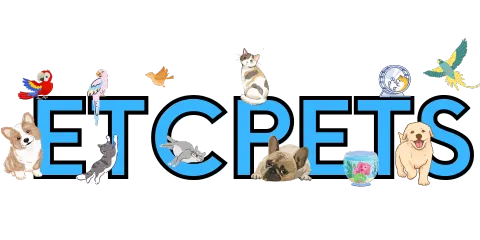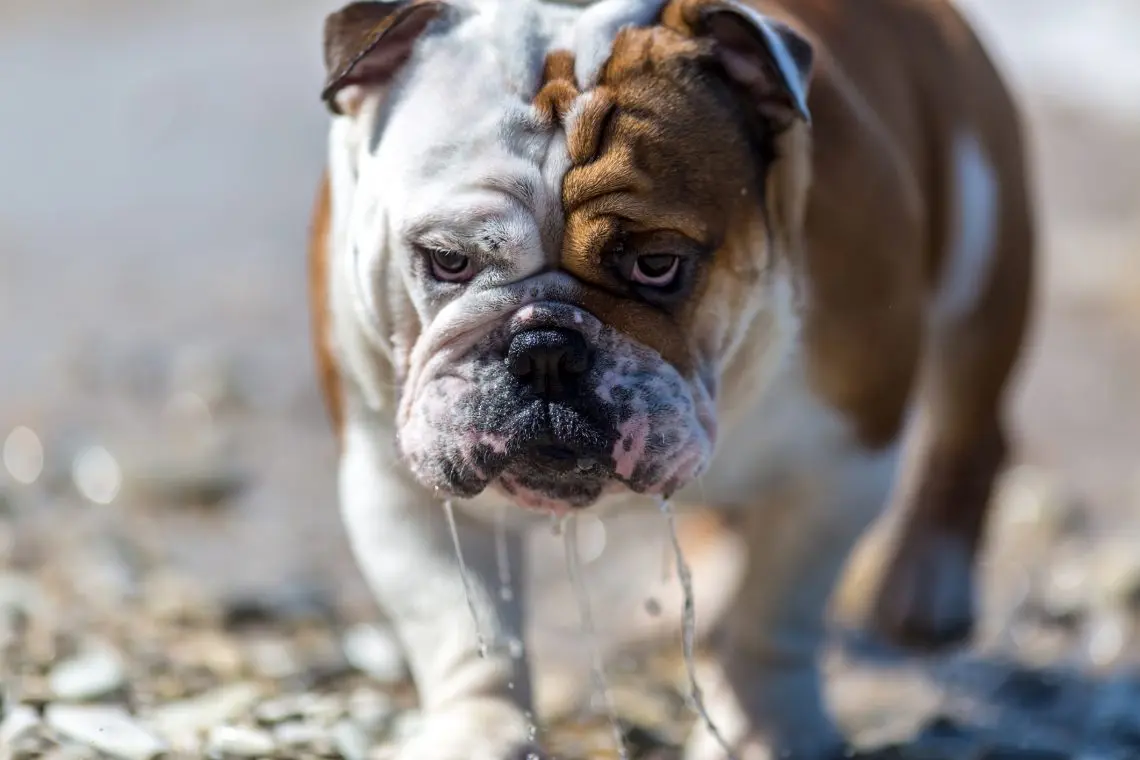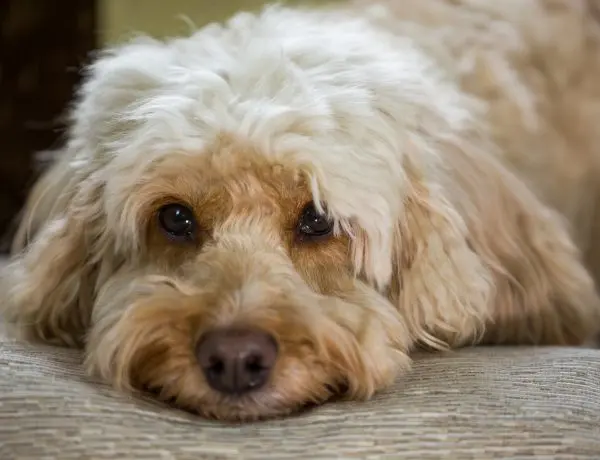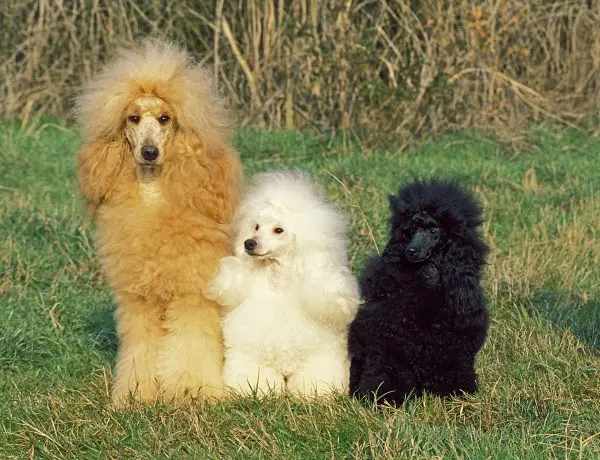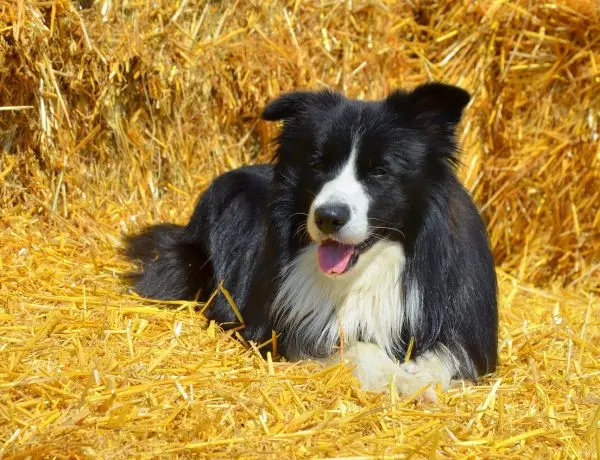There are many things to consider when adopting a pet. One primary concern is drool. Nobody wants to be covered in slobber when they snuggle with their pet. Knowing which dogs do not drool is vital in a doggy search. The good news is there are many non-drooling dog breeds to choose from!
Avoiding drool does not have to be a challenge. While all dogs will occasionally drool (especially when they are hot or anxiously waiting for a treat), this article reveals 23 dog breeds that typically do not drool excessively. With these dogs, there is little worry of unwanted slobber around your home.
Table of Contents
1. Australian Cattle Dog
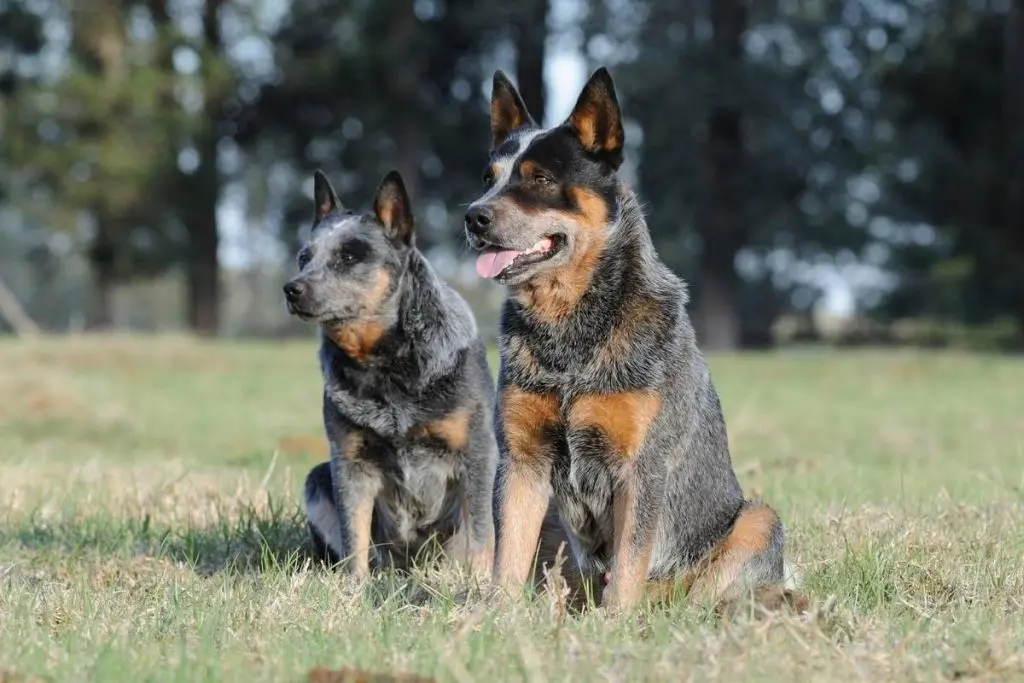
Australian Cattle Dogs are medium-sized dogs that don’t drool. However, this breed has a seemingly endless supply of energy. Without proper exercise and a job to do, the dog may become destructive.
The Australian Cattle Dog must be trained and socialized at a young age to prevent them from becoming overly destructive. They can also be wary of strangers, and they need to be supervised around children.
2. Basenji
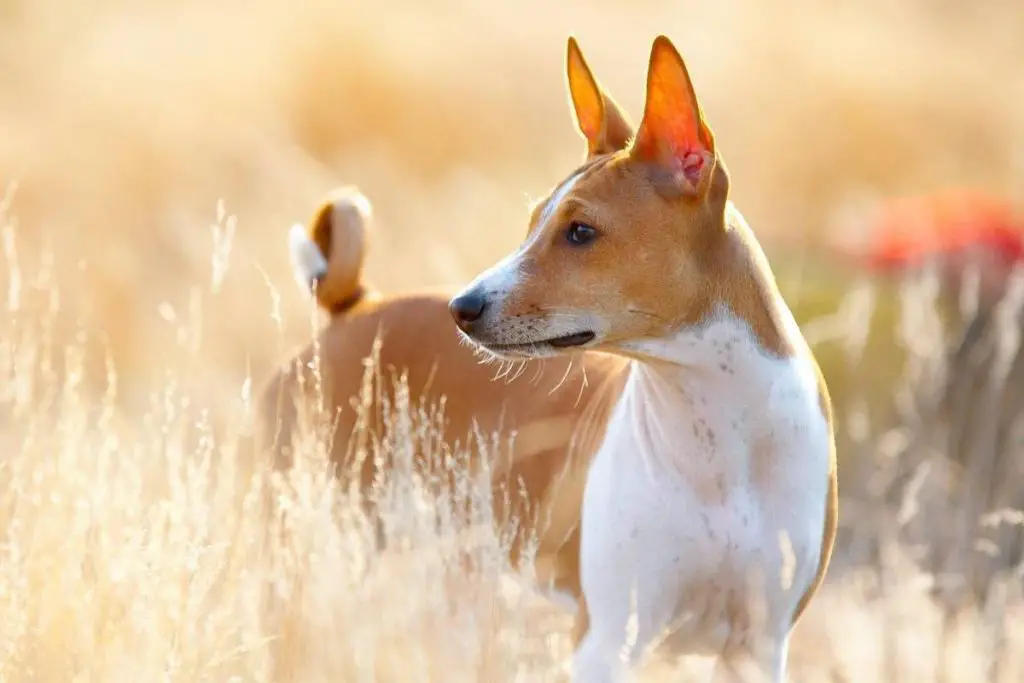
The Basenji is a sweet and jovial fellow that doesn’t drool or bark (but they do make many other vocal sounds). Even though Basenjis love their people, they are often not suitable for homes with small children.
The Basenji has an abundance of energy. He is a big lover of games and tricks. He can be shy around strangers, but once he gets to know someone, he becomes a playful pup that loves to show off everything he knows.
3. Bichon Frise
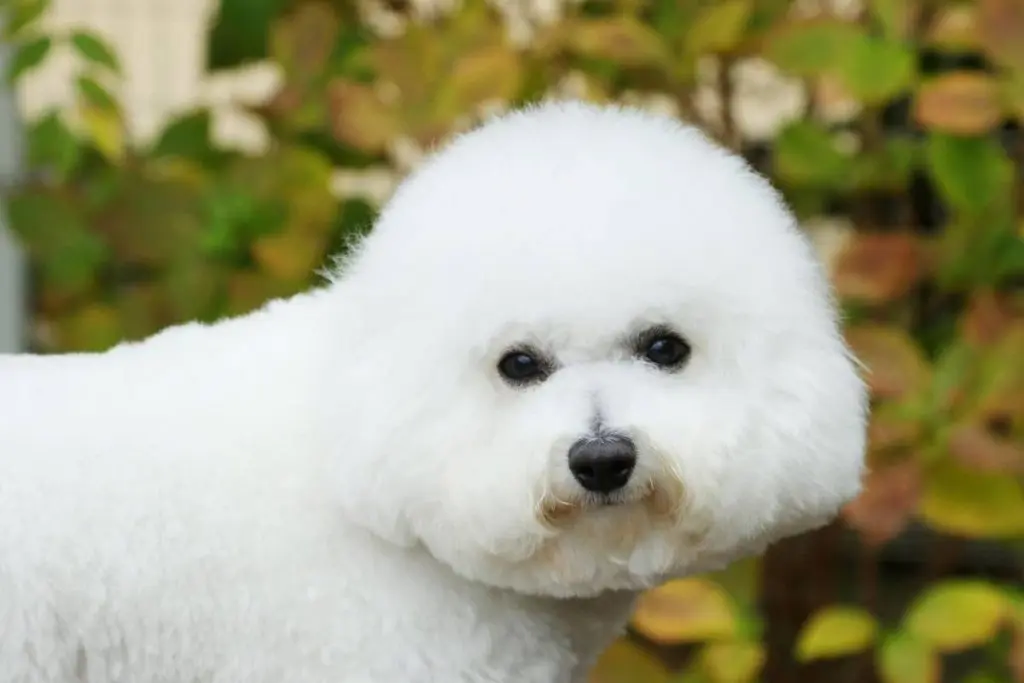
A Bichon Frise is a bundle of fluffy cuteness that anyone would enjoy having in their home. He is a brilliant dog that loves to learn and perform tricks for his loved ones. The Bichon Frise is a happy-go-lucky pooch that doesn’t drool, although he requires daily brushing to stave off potential skin infections and keep his coat from becoming matted.
A bonus of owning a Bichon Frise is that they are often excellent with kids and work well with other pets. Bringing one into the family is easy, even when there is another dog or cat in the home. He is an independent dog, but he should not be left alone for extended periods because he may become lonely and destructive.
4. Border Collie
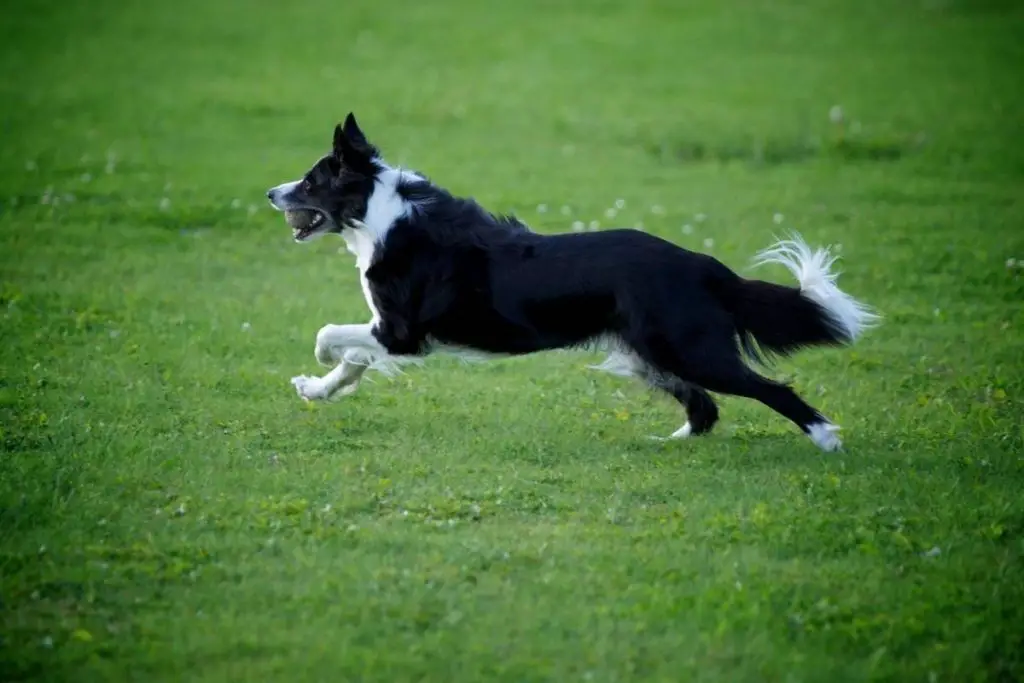
If you are up for the challenge, a Border Collie might be your best pick. He is not a drooler, which is a significant plus for this cute, intelligent breed. However, the Border Collie is a bundle of energy. He requires many activities to keep him from becoming bored and destructive. It can be a challenge to keep up with him!
Border Collies are not the ideal dog for first-time dog owners. They must be stimulated mentally and physically. Their coat requires regular brushing to keep it in tip-top shape. Aside from their many needs, the Border Collie is a sweet and fun-loving pooch.
5. Bolognese
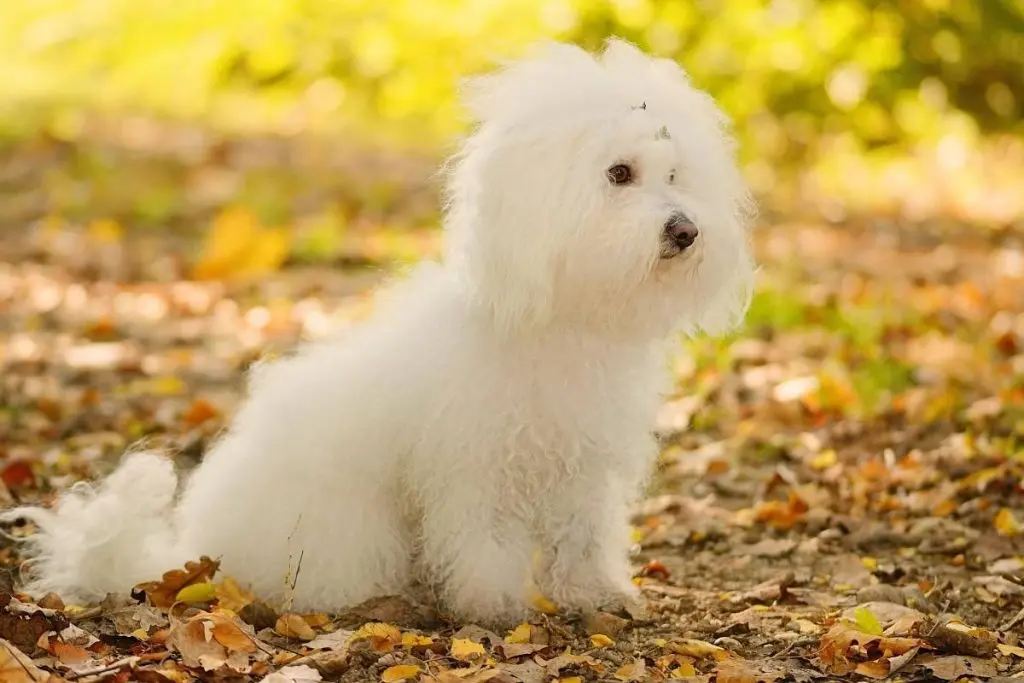
The Bolognese is a member of the Bichon family originating from the Italian city of Bologna. Therefore, the Bolognese breed is not a drooler. They are well-mannered, fun-loving dogs that get along well with kids and other pets.
However, owners should be careful with a Bolognese. Although the dog is friendly and loves to be around his loved ones, he is also known for being mischievous and manipulative. He loves to get his way and can be stubborn when it comes to house training. Patience is critical when it comes to raising a Bolognese.
6. Borzoi
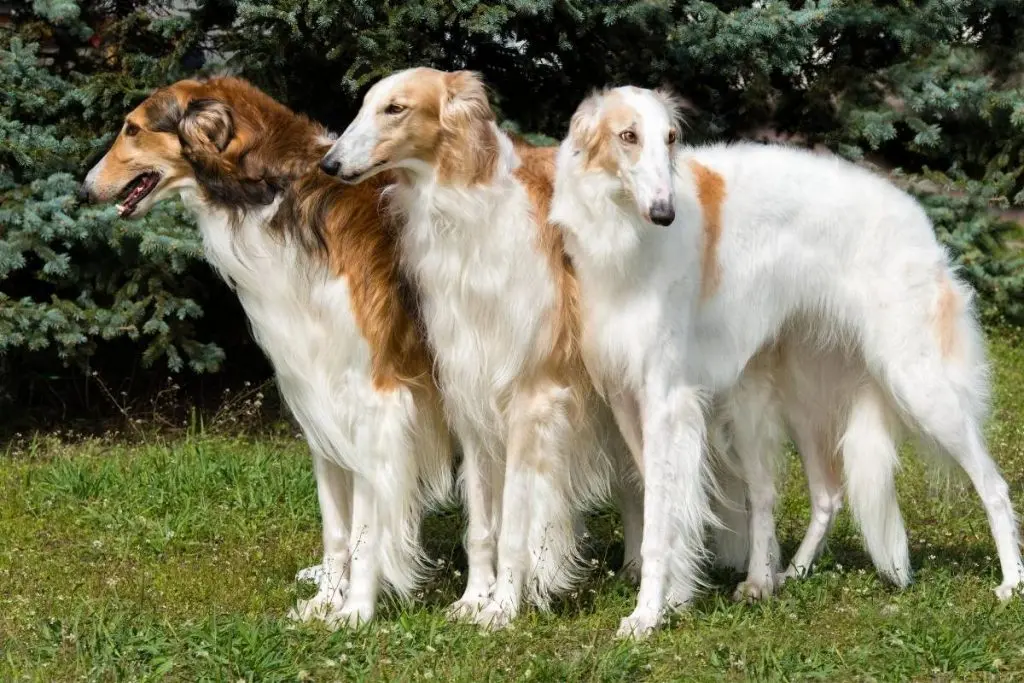
Although very graceful, the Borzoi is quite large, typically weighing close to 100 pounds and standing nearly 28 inches tall at the shoulders. There are a couple of benefits to owning a Borzoi, though: they do not drool or make a mess while drinking water, and they are also not known to be barkers.
The Borzoi has a calm temperament and shouldn’t be sought after as a guard dog. This breed enjoys running and playing more than they enjoy looking over the house and being a protector. Still, the Borzoi requires ample, open space to get his energy out. They have a powerful prey drive and MUST be carefully supervised around small animals.
7. Brittany
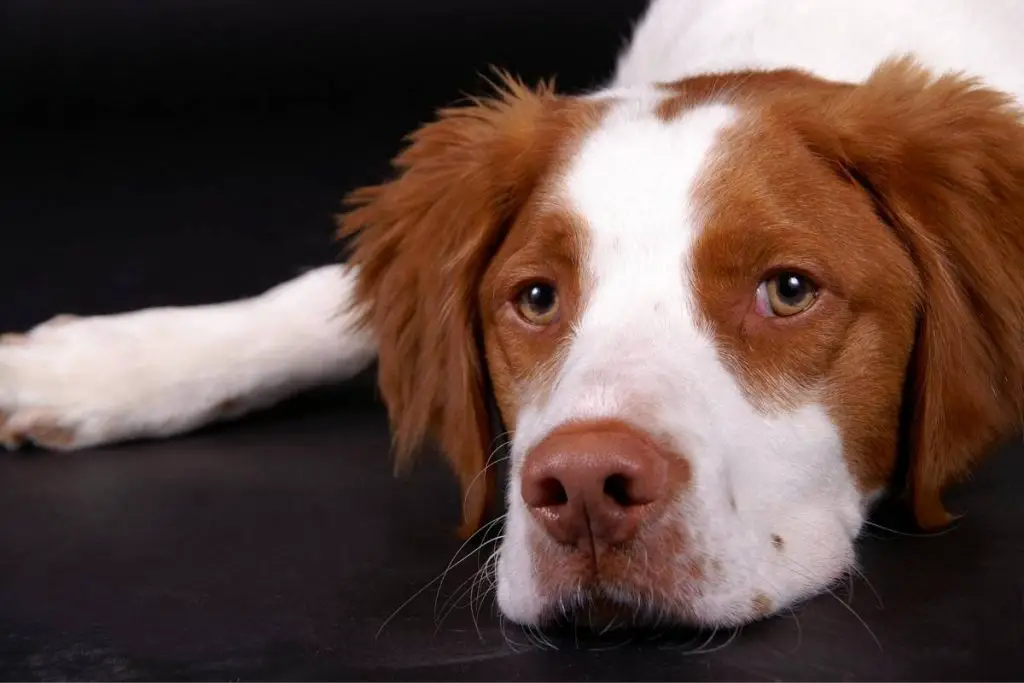
The Brittany is a high energy breed that requires plenty of exercise to stay calm and happy. They also tend to be roamers when bored, which places even more importance on regular exercise. The Brittany loves to bark, and his barking can quickly become excessive. Proper training to avoid incessant barking is crucial, as well as early socialization.
A Brittany doesn’t just love to bark — he also loves children and is always ready for some playful roughhousing. This is a bonus for families looking for a friendly, yet energetic dog that can keep up with children of all ages.
Overall, the Brittany is simple to take care of. If the owner remains firm, offers plenty of exercise and activity, and trains and socializes the dog from a young age, he can be a great addition to the household – not to mention one that doesn’t drool.
8. Cavalier King Charles Spaniel
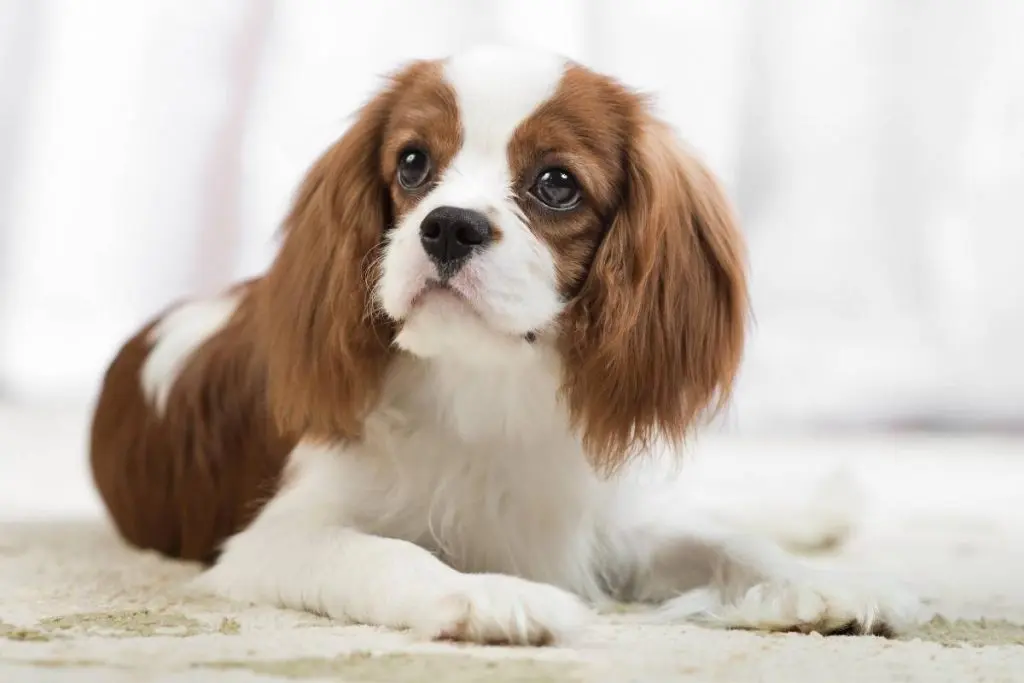
The Cavalier King Charles Spaniel is one of the sweetest and calmest dog breeds. He makes a wonderful addition to the family. He loves to spend time with his family members, and his playful attitude and patience make him a top pick for families with small children.
This breed is not known to drool, although their long, floppy ears can sometimes find their way into a water bowl. This pet needs plenty of attention. Since he’s a born snuggler and playtime pal, too much time on his own can result in separation anxiety. Comb his hair regularly to avoid knots, spend lots of quality time with this pooch, and you’ll have a companion for life.
9. Chihuahua
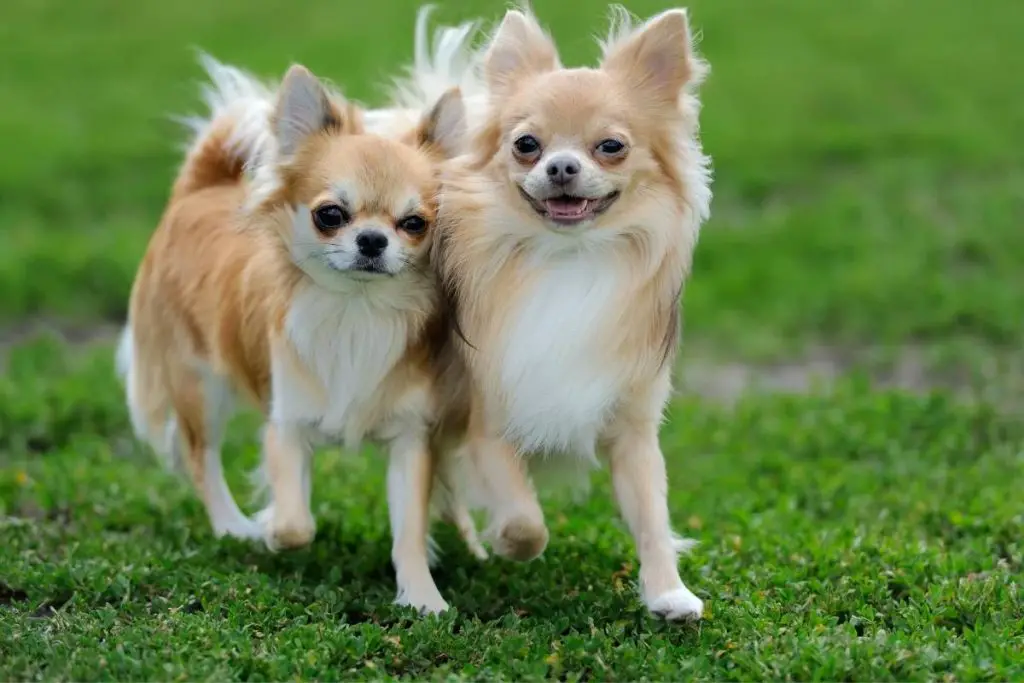
Did you know that the Chihuahua has the largest brain (in relation to its body) of all dog breeds? Chihuahuas are incredibly popular, whether they are just loved pets or used as therapy dogs in various situations. They do need early socialization and supervision around small children, though.
The Chihuahua is intelligent, brave, and friendly, which is why so many people enjoy having this delightful tiny pooch in their home. He also doesn’t drool, which is a bonus. Give him a short walk a few times a week, and this adorable yapper is your best friend.
10. Chinese Shar-Pei
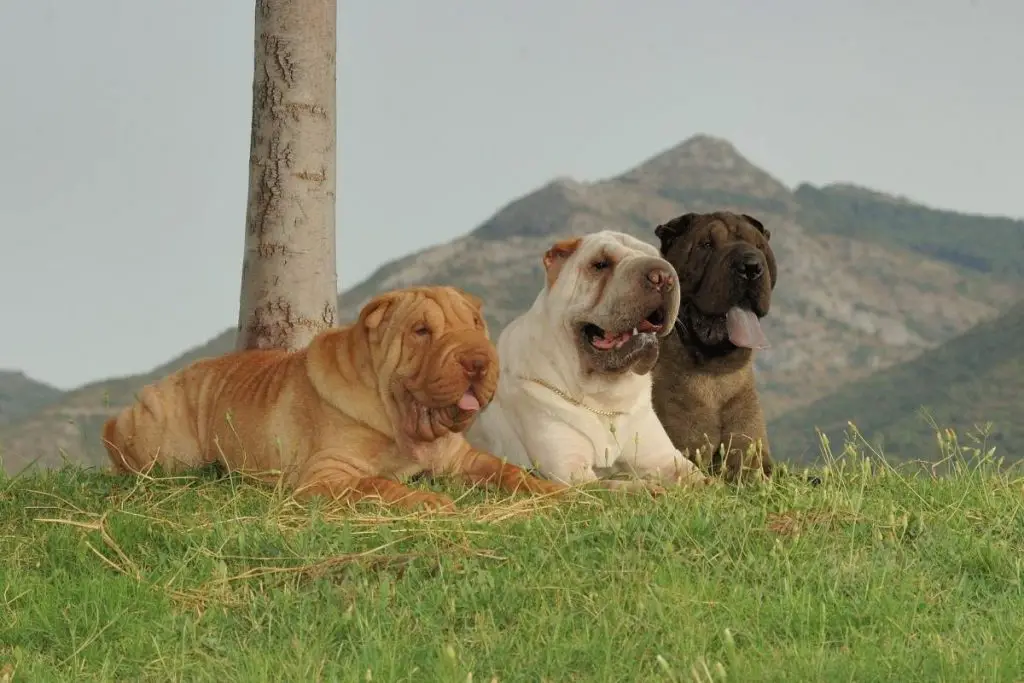
Chinese Shar-Pei are easily recognized thanks to their wrinkly, flappy faces. The excessive loose skin folds of the face make it a standout breed, but it also makes it one of the most adorable breeds. With so much extra skin around the face, it’s easy to think he would be a heavy drooler — but that’s not true. He doesn’t drool, although he does shed.
Shar-Pei are known for being loyal but independent. They tend to be aloof when it comes to people they do not know, which is why they should be socialized at a young age. Don’t expect this breed to be a big cuddler, either. Shar-Pei enjoy being by themselves. They do not bark much and are not usually great with other pets, so they require a dominant owner.
11. Dachshund
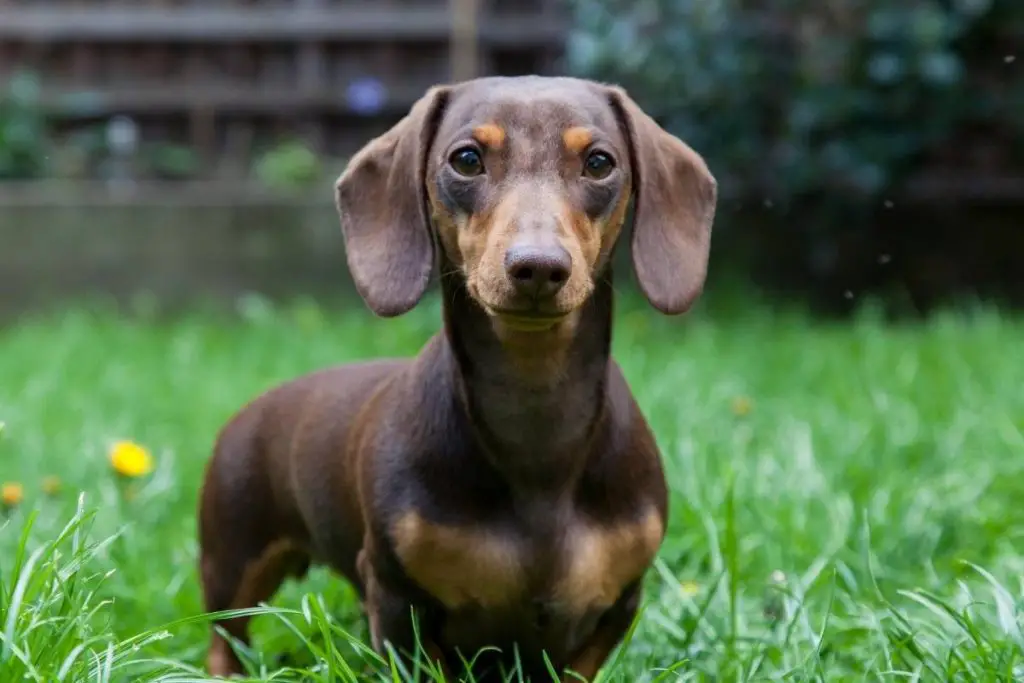
If there is one dog that comes to mind when you think of the ideal family dog, it’s the Dachshund. This adorable little guy has a long body and short legs and always seems to have a goofy smile on his face that reflects his personality. He has a calm temperament and a fun-loving nature. He simply loves to see his family smile!
The Dachshund is also known to be a good watchdog. He is suspicious of people he doesn’t know and will bark at them in an attempt to keep his family safe from potential harm. Despite his small stature, he is a brave dog that doesn’t drool or shed too much. He must have regular exercise and proper nutrition and can be prone to potential back problems.
12. Doberman Pinscher
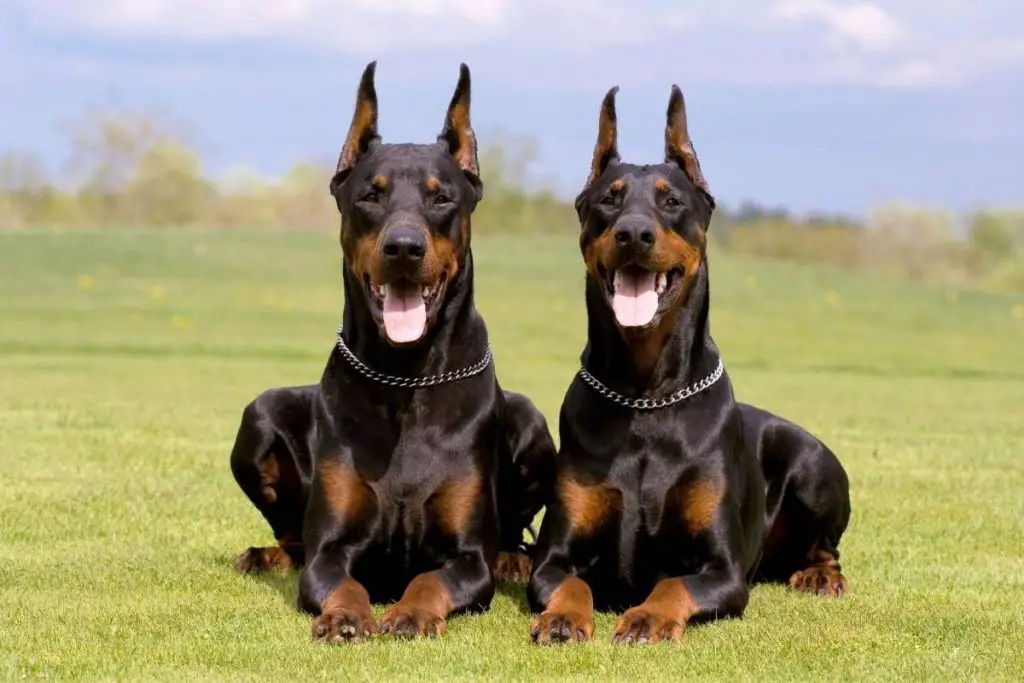
Thanks to his tight lips, the Doberman Pinscher is not a drooler. He is known for being a loyal protector. However, you must watch out for your Doberman becoming a bit too aggressive with strangers. You can combat this by properly training and socializing him from a young age.
The Doberman Pinscher has a short coat, so grooming is a cinch with this 90-pound cutie. He is prone to some severe diseases, including heart disease and hemophilia. Without these problems, he can live for around 11 years.
13. Greyhound
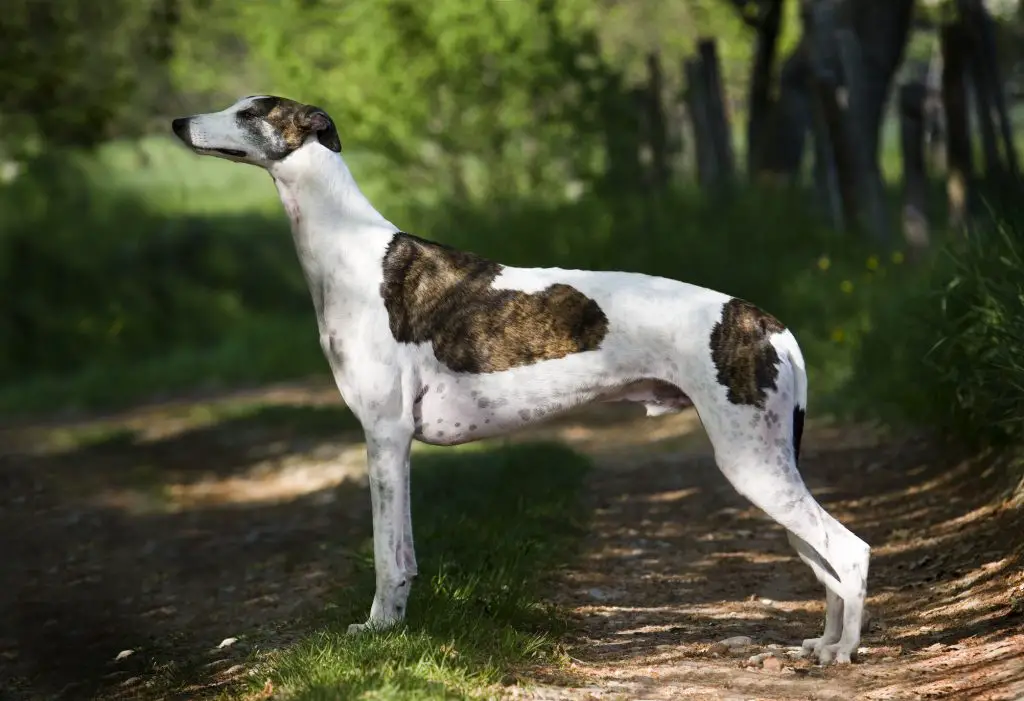
Greyhounds are a highly sought after breed and the fastest dog in the world. They can reach speeds of up to 40 MPH! It is also the reason behind his need for daily exercise. He loves chasing, so proper training and socialization are necessary to avoid aggressive behaviors.
The Greyhound is a sweetheart with a gentle way about him when adequately trained. He requires an owner who isn’t afraid to be dominant, or he will readily become overly confident and think he is the one who is in charge.
14. Havanese
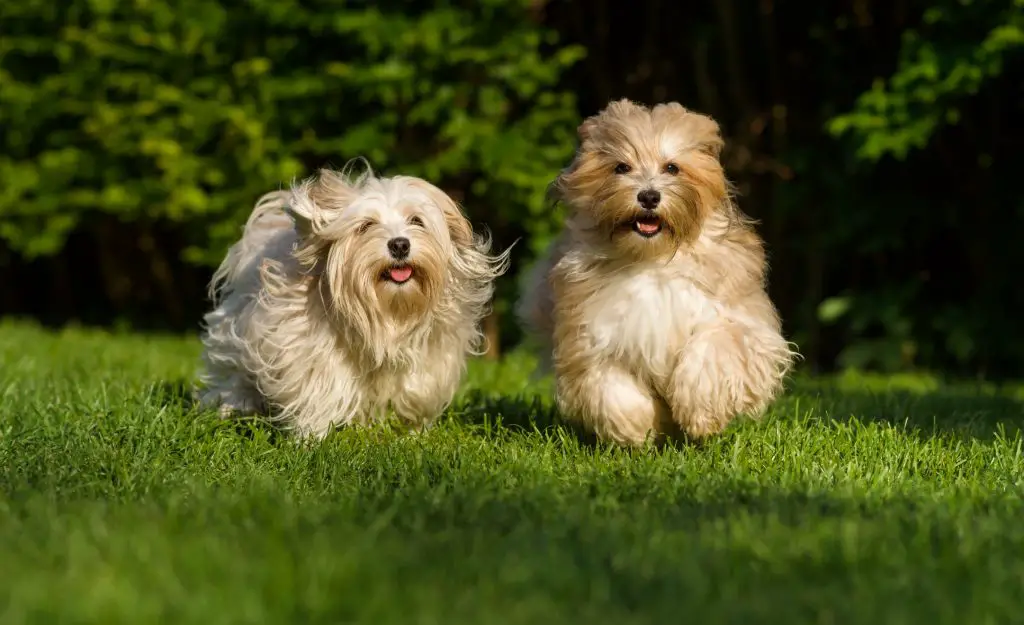
Referred to as “The Velcro Dog,” the Havanese is an overly loving dog that sticks to his owner like Velcro – hence the name. He is happy to spend every waking moment with his owner. He is prone to anxiety when left alone for too long. If you’re looking for a dog that loves to be always by your side, this is the pet for you.
While this breed does not drool, it has very high grooming demands. Their coat must be combed daily, and they must be bathed often, as they can become dirty quickly. Additionally, this breed requires plenty of exercise as they are active and love to bounce around and have a good time.
15. Leonberger
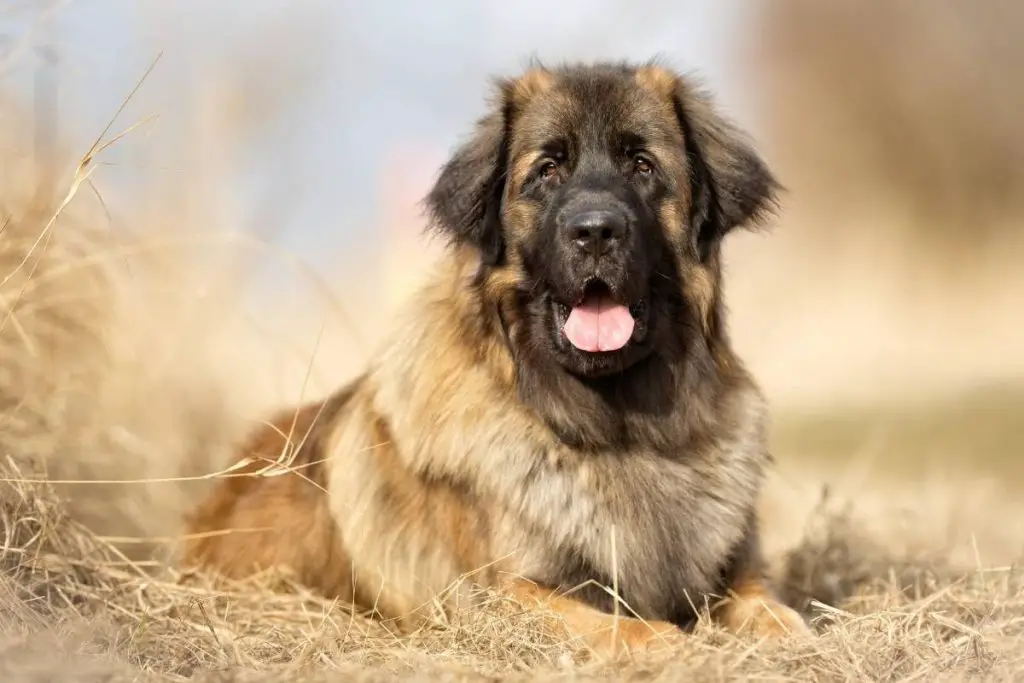
Although the Leonberger is a large-sized breed, he doesn’t drool – which is uncommon for many large breeds. He is an excellent pick for a bigger dog to add to the home, although he tends to shed quite a bit. While there is no worry of dealing with drool, there’s still the hassle of sweeping and grooming regularly.
This gentle giant is a friendly fellow that is great for homes with kids. He is known for being playful and fun-loving, making him a top-notch companion for the entire family – even the little ones! Watch out for health issues, though, as Leonbergers are known for suffering from bloating and heart problems. The average lifespan for this loveable, huge pooch is only 7 years.
16. Old English Sheepdog
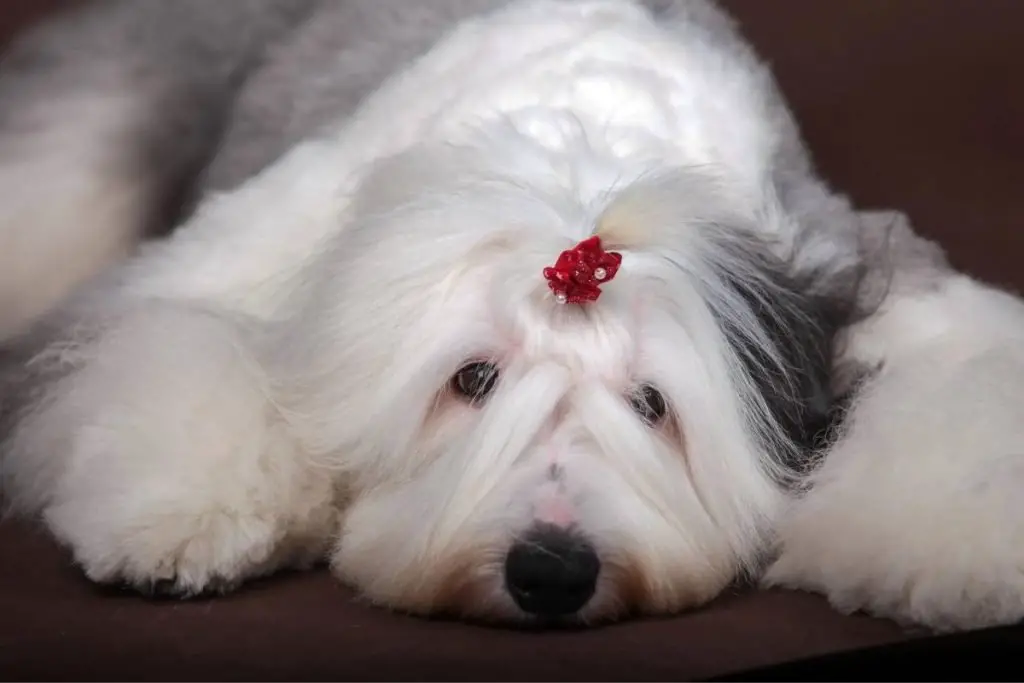
If you have a love for giant, fluffy furballs, you will love the Old English Sheepdog. He is an incredibly hairy fellow, but you won’t have to worry about cleaning drool from his coat. However, you will need to clean him up after he drinks from his water bowl, as water will accumulate on his excessive facial hair.
The Old English Sheepdog is calm and quiet and loves to laze around, snuggling with his family members. He is highly obedient, and training is a breeze. Be aware that hip dysplasia and bloat are common with this breed.
17. Papillon
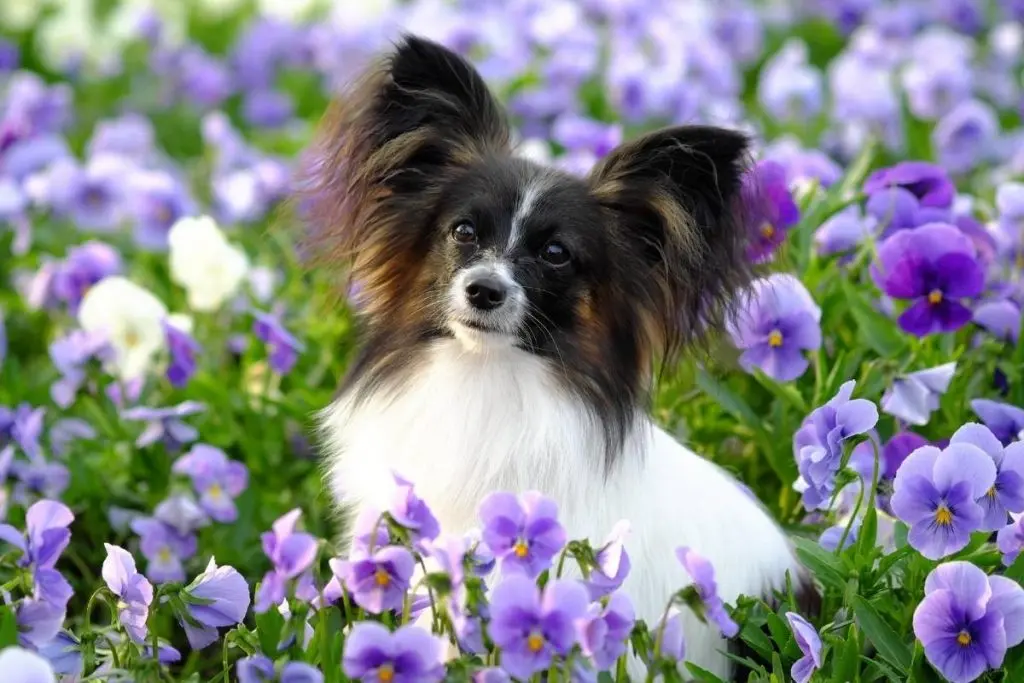
The Papillion is not your average small breed. Instead of being a cuddle buddy, the Papillon would much rather be running and jumping. He is a little ball of endless energy and requires a lot of activity to make him happy.
That doesn’t mean he isn’t a good listener, though. He is known for being one of the top ten smartest dogs in the world and can learn even the most challenging tricks with ease. If you can handle his high energy levels, the Papillion makes a terrific pet that is good with kids and other pets – and he doesn’t drool!
18. Pembroke Welsh Corgi
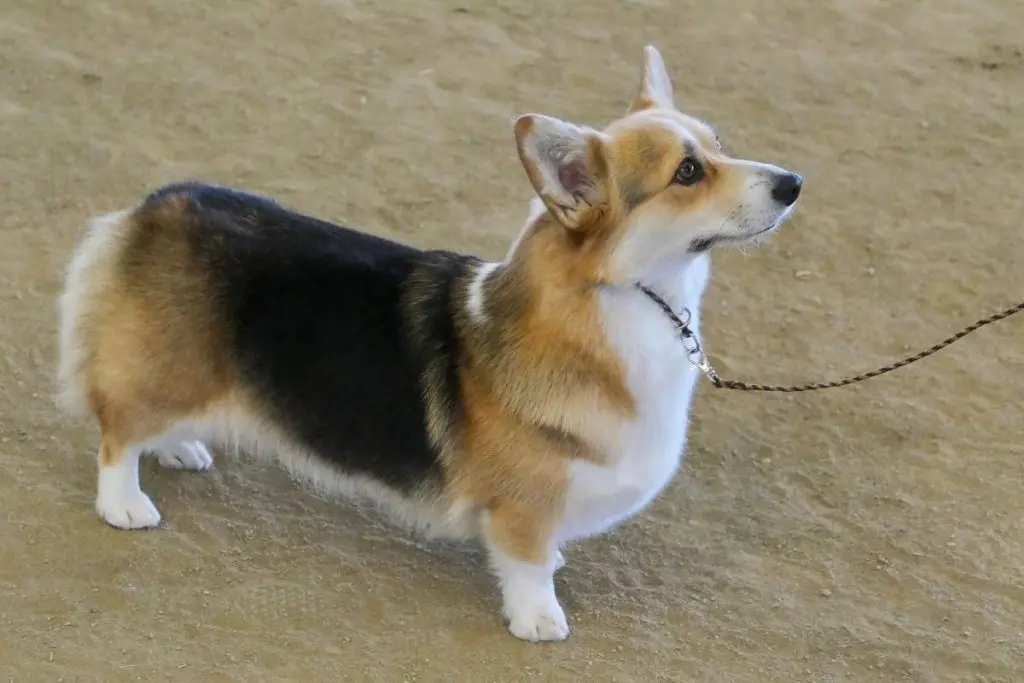
While a Corgi’s little, unique body and big smile instantly light up your world, he is not a dog for first-time dog owners. Although he is not a drooler, the Corgi is known for being stubborn and dominant. He can be timid around people he does not know and tends to bark regularly. He is also a heavy shedder.
With an owner who is willing to lay down the law and show who is in charge, the Corgi can be a delight. He usually gets along well with other pets and people, and he quickly becomes very loving when he realizes a person is not a threat.
Corgis require a lot of exercise to avoid becoming obese and should not be left alone too long; otherwise, they may become destructive. The Corgi is a playful fellow, and kids will have a blast keeping up with his comical personality and high energy levels.
19. Pomeranian
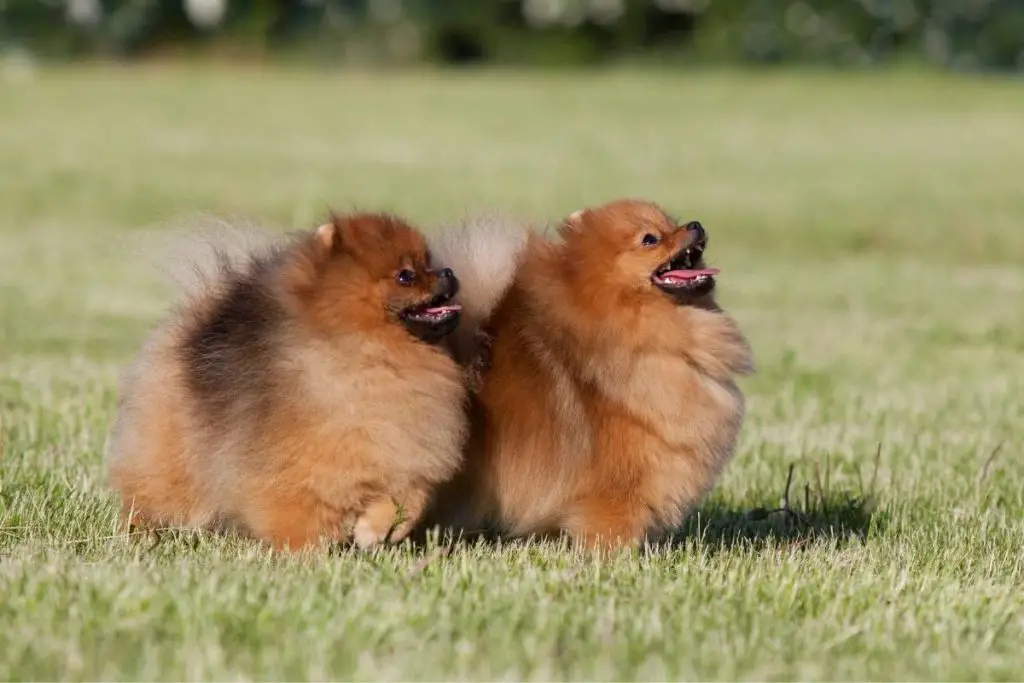
The Pomeranian is a lovely little dog. This breed’s soft, fluffy coats act as a lap warmer, and owners love stroking the fur because it’s so soft. This breed is perfect for families as Pomeranians adore children. However, the tiny lion-like dog often does not get along well with other dogs.
Pomeranians are easy to take care of. They are on the adventurous side, which can be a plus when owning a dog. They love to cuddle but also enjoy exercise. The Pomeranian does not drool, and despite having a long fluffy coat, he doesn’t need extensive grooming – just a thorough brushing several times each week.
20. Samoyed
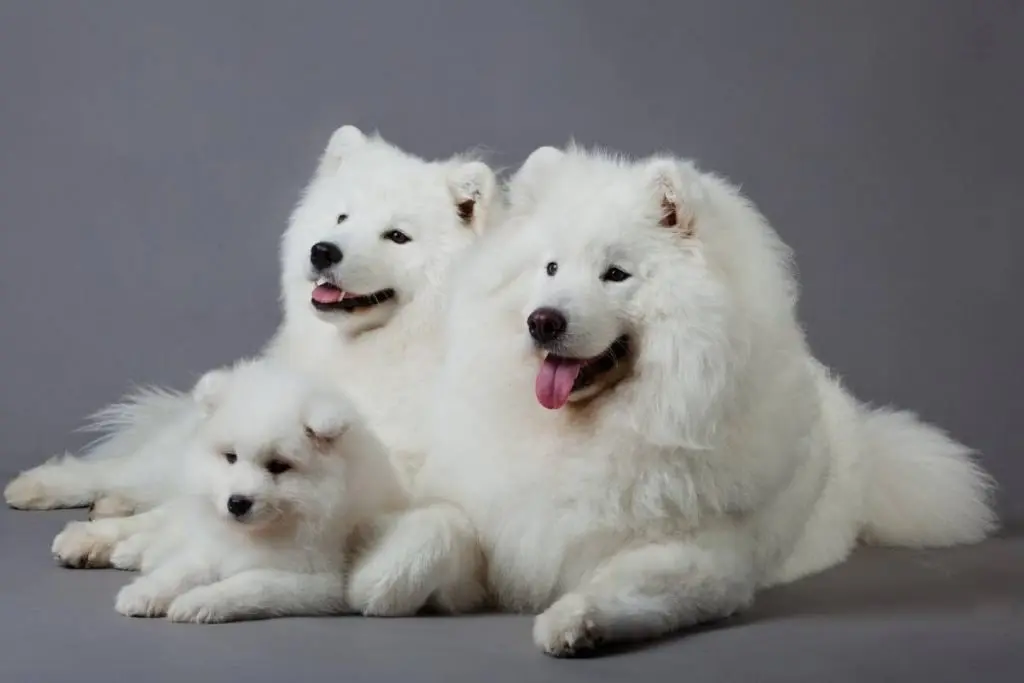
For those looking for a giant ball of fluff, the Samoyed is an excellent option. These cotton-candy-looking dogs are adorable and come with a cute set of button eyes. The fluffy coat requires a large amount of grooming since it is prone to matting.
A Samoyed’s temperament is loving and loyal. He enjoys being around his family. When left alone for too long, he may become destructive. This breed craves mental and physical stimulation regularly and can become bored quickly. He is not a dog that enjoys lying around.
While he is not a drooler, don’t be shocked if he gets some water in his fluffy coat when drinking out of his water bowl.
21. Shiba Inu
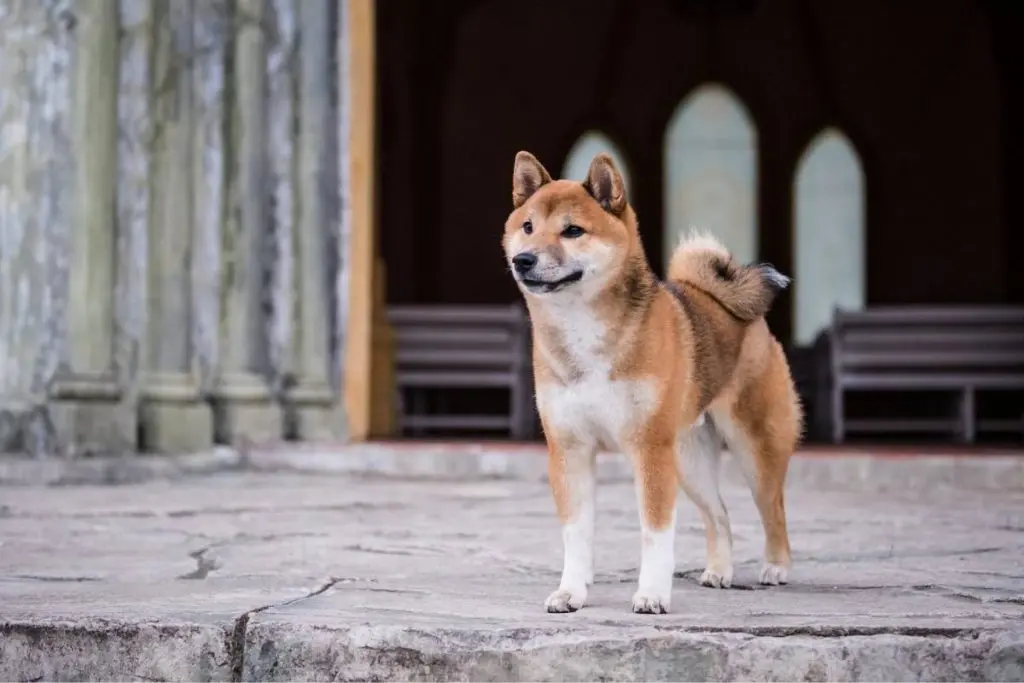
The Shiba Inu breed is frequently mistaken for a fox because of their similar appearances. He is a dog that does not like to share and enjoys having a “spot.” He is also on the stubborn side and doesn’t always listen to his owner. This doesn’t mean he isn’t a loving and playful dog, though, and with proper socialization and training, he is still suitable for families.
The Shiba Inu does not drool, but the owner should know that he will shed excessively at least two times each year. This occurs when the seasons change, and the dog’s coat follows suit. This breed is susceptible to glaucoma, cataracts, knee injuries, and hip dysplasia.
22. Siberian Husky
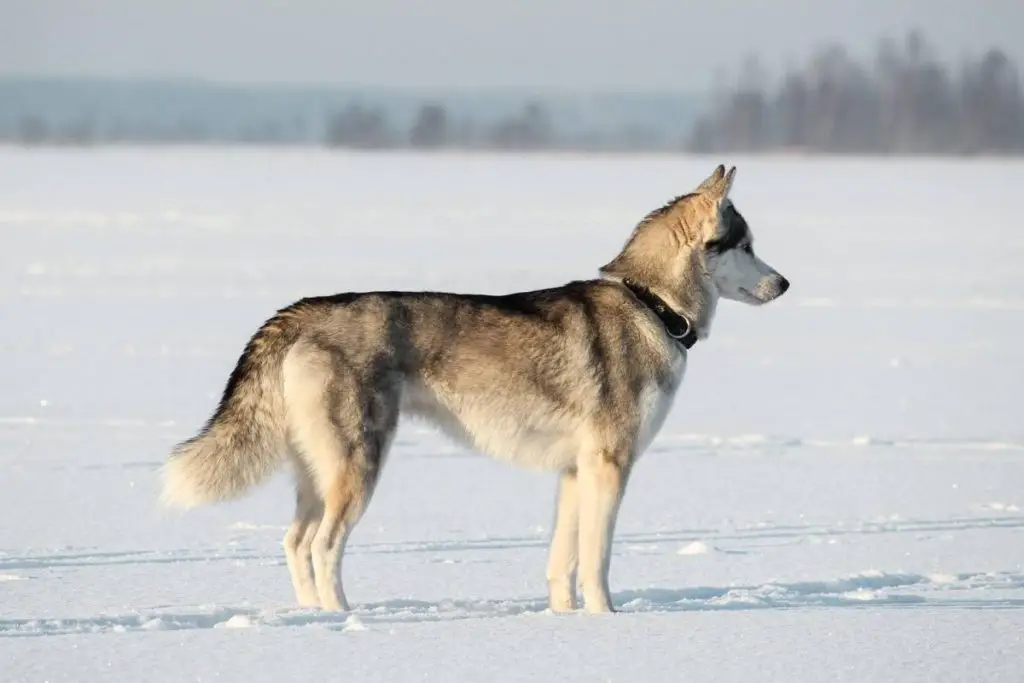
A set of fierce, crystal blue eyes and a striking coat is what draws many to the Siberian Husky – but they might not know what they are in for. The Siberian Husky is a very happy and charming pup. However, he is also known for being a bit stubborn and an escape artist. They are widely known for getting out of the yard. It is vital to check your fences and housing to ensure there are no places they could escape from.
The Siberian Husky is a large-sized breed that doesn’t drool, but at least two times per year, there is heavy shedding. Owners need to make it clear they are the pack leader, as Siberian Huskys can sometimes have a difficult time listening and tend to be dominant.
Proper training at a young age is essential for this breed. He is a stubborn dog, so getting him into professional training while still young is crucial. The Siberian Husky is not for first-time dog owners as he tests the boundaries and can be a challenge.
23. Standard Poodle
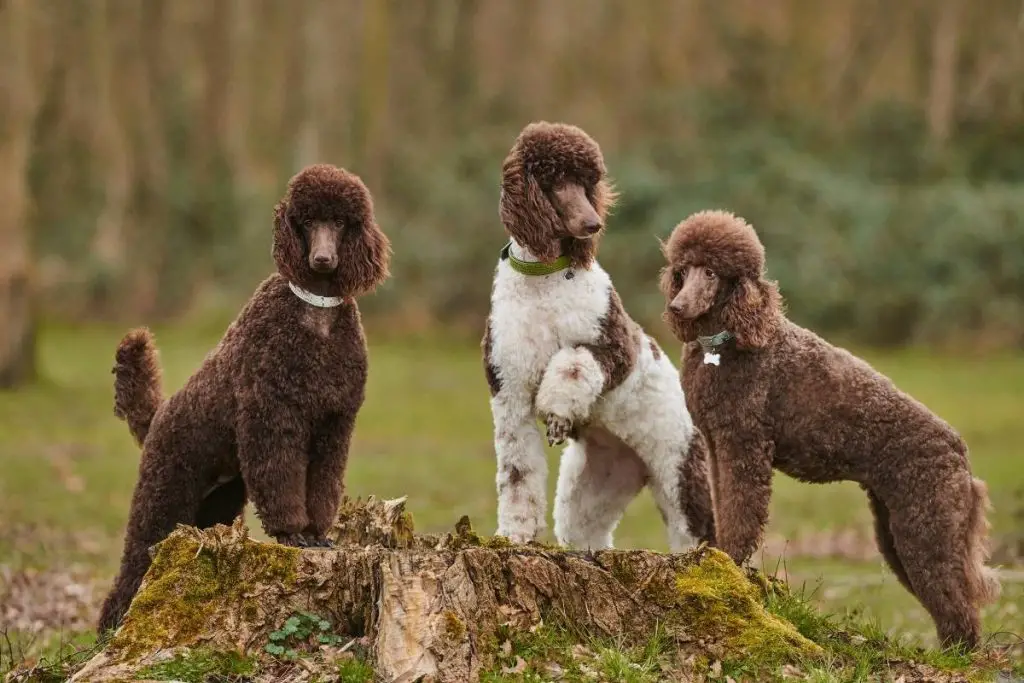
The Standard Poodle is a classic breed. He is one of the most popular dogs, partly because of his adorable looks and the fact that he is a hypoallergenic dog that does not drool or shed regularly. The Poodle is highly intelligent with a friendly temperament.
The Standard Poodle is excellent for almost any household. He is easy to take care of and fits into the family life easily. He tends to be on the more active side, so you must make sure that he is exercised regularly.
While this is an excellent breed to own, especially if you want a large dog that doesn’t drool, the downside to the Poodle is that he is prone to many serious health issues. Some of his most common health problems include bloat, hip dysplasia, Addison’s disease, epilepsy, skin issues, and kidney disease. Regular grooming is also crucial with this breed.
Drooling Dog Breeds to Avoid
For those who do not want to deal with drooling, it’s not enough to know what dog breeds do not drool. It is equally important to know which dogs drool excessively. By knowing which breeds always drool, you won’t end up in a situation where you fall head over heels in love with a dog only to bring him home and end up with drool all over your house.
The dog breeds that drool the most include:
- Bernese Mountain Dog
- Bloodhound
- Boxer
- Bulldog
- Bullmastiff
- Cane Corso
- Dogue de Bordeaux
- Great Dane
- Neapolitan Mastiff
- Newfoundland
- Saint Bernard
- Sussex Spaniel
Why Would a Dog Suddenly Start Drooling?
If you are the proud owner of a furry best friend known for not drooling, a sudden spike in slobber should raise some concern. When a dog suddenly starts to drool, there is likely something going on with your dog that may require medical attention.
Some of the reasons for sudden slobber includes:
- Suffering from a heatstroke
- Having anxiety (This can be caused by being left alone for too long, or if something suddenly occurs that causes stress, such as an abrupt movement or loud noises.)
- Motion sickness (This will commonly occur in the car or on a boat.)
- Mouth/Organ disease
- Tooth decay (This can typically be easily found by doing a quick mouth inspection.)
- Poisoning (This will more than likely come with other symptoms, too.)
- Stomach issues
- Upper respiratory infections
- Tumor in the salivary glands
- Side effects to a medication
- Epilepsy
Sometimes, sudden drooling can be caused by a simple upset stomach that does not require immediate medical attention. However, more severe issues like a tumor or organ disease should be evaluated by a veterinarian.
When drooling is combined with other symptoms, it is even more essential to take your pet to a veterinarian right away. The combination can signify a more severe illness or disease other than an upset stomach or anxiety attack.
These additional symptoms may include:
- A sudden decrease in appetite
- Sudden change in eating schedule
- Changes from normal behaviors
- Excessive pawing at the face
- Difficulty with chewing
How to Handle Drooling
For those who were a little too late when it came to finding the 23 best dogs that don’t drool, here are four tips for dealing with dog drool:
- Clean it up right away. When dog drool isn’t instantly cleaned, it can quickly become a crusty mess. It’s crucial to clean your dog’s face regularly, especially after exercising.
- Tie a bandana around the dog’s neck. This will “catch” the drool before it hits any surfaces, which means less clean up around the home. Toss the bandana in the washing machine at the end of the day.
- Place a towel or rug where the dog eats. A dog awaiting his food will drool more. Place a towel or rug where he eats to keep some of the mess at bay.
- Never feed your dog before a car ride. Since car rides tend to increase the amount of slobber, it will help if you do not feed your dog before a car ride. Wait at least 2 to 3 hours after feeding your dog to put them in a car.
- Talk to the vet about a homeopathic remedy. There are some natural ways to cut down on drool, but it should always be discussed with a veterinarian first.
Conclusion
Drooling is a significant concern when it comes to adopting a pet, but the good news is that not every dog is a drooler. Choosing one of these 23 best dogs that don’t drool will ensure you take home a dog that won’t leave slobber trails. Whether you opt for a large Leonberger or an adorable Cavalier King Charles Spaniel, you are sure to gain a drool-free companion for life!
